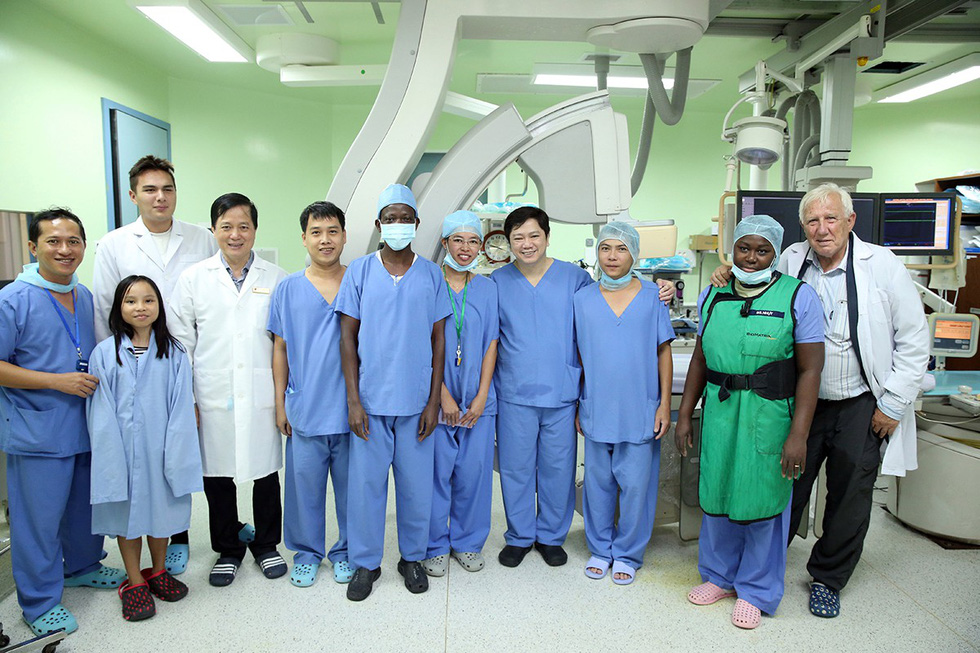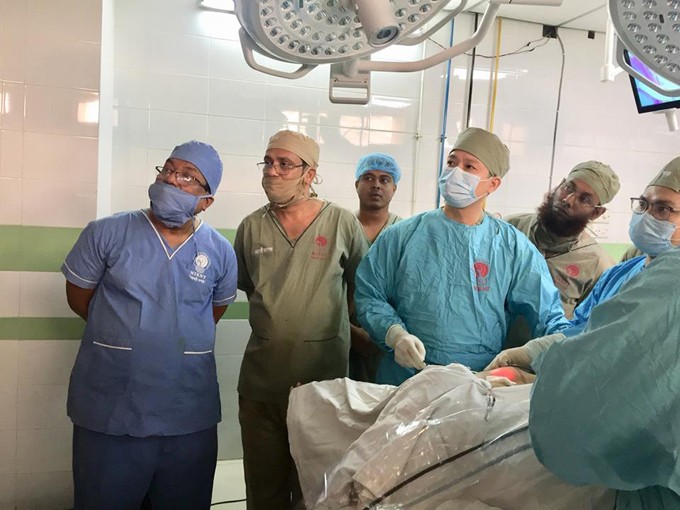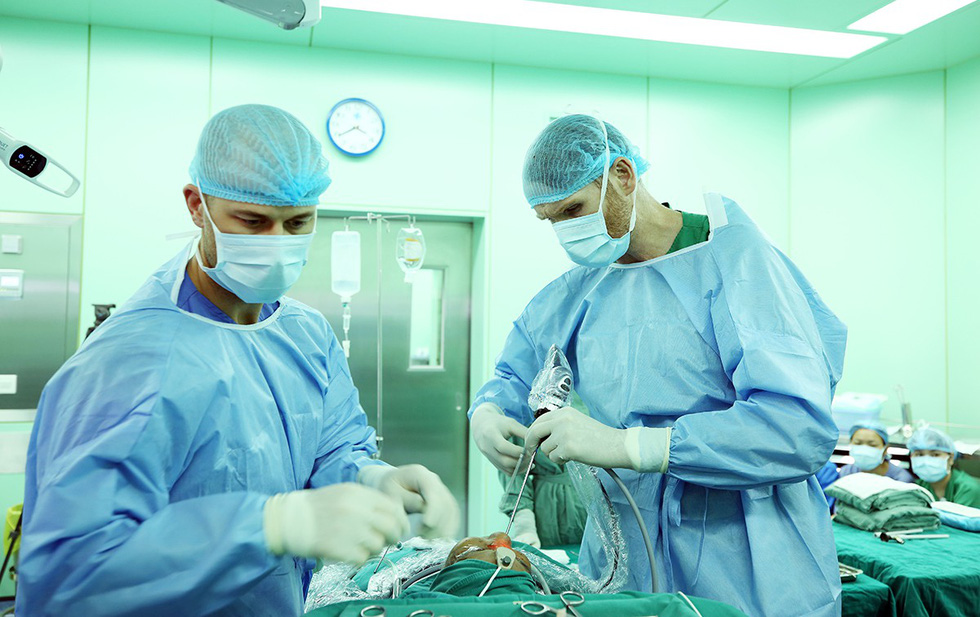While previously many Vietnamese doctors lacked the expertise in comparison with foreign ones, nowadays Vietnamese medicine impresses the world with three branches including in vitro fertilization, cardiology, and endoscopy, with foreign doctors coming to Vietnam to learn about these procedures.
The first foreign doctors and professors to come to Vietnam and learn from its medicine were welcomed by the National Hospital of Endocrinology.
Now it is not the only hospital to embrace foreign doctors as other hospitals such as Tu Du Obstetric Hospital, Heart Institute Ho Chi Minh City, and University Medical Center Ho Chi Minh City also provide training courses open to qualified foreigners.

Training courses for foreign doctors
Doctor Tran Ngoc Luong, director of the National Hospital of Endocrinology, is known for being the first surgeon in the world to do a thyroid endoscopic surgery with the cut being between the neck and armpit, which was done around 10 years ago.
Vietnamese techniques usually stand out thanks to their practicality, time-saving feature, and low cost as both Vietnamese hospitals and patients cannot afford high expenses.
Hence, instead of having a hospital buy an expensive robot for thyroid endoscopic surgery like hospitals in developed countries, Doctor Luong had to come up with his own solution when in 2004 he was the first person to successfully conduct the surgery.
Currently, the technique has been shown to doctors and professors of many countries including Saudi Arabia, Indonesia, India, Korea, Pakistan, Thailand, Australia, Singapore, and China, among others.
“In regard to technique, it is very simple, and the tools used are the most basic ones for endoscopic surgery, but the effect is apparent, with patients not having a long scar on their necks,” Doctor Luong said, adding that it might be the main reason why so many doctors in the world are interested.
There have been around 300 foreign doctors who have come to Vietnam to learn Doctor Luong’s technique with one-third being professors and most being experienced doctors.
Even though the technique has drawn much interest from foreign counterparts all over the world, the expenses for learning it are very low and a course usually lasts from one to three weeks.
Another area of medicine that has significantly improved throughout the years is endoscopic surgery.
In 2003, the University Medical Hospital Ho Chi Minh City was the first hospital to establish a center to train endoscopic surgery techniques with a simulation system worth US$200,000.
It was also one of the two institutions in Asia to allow doctors to practice on real corpses.
Until now, the center has provided training for over 1,600 surgeons, 700 of whom were foreigners.
Tu Du Obstetric Hospital in Ho Chi Minh City, which implements endoscopic procedures in obstetrics, is another unit to notice the influx of foreign doctors having come to Vietnam for training in the last 10 years.
According to Doctor Ba My Nhi, vice-director of the hospital, it has welcomed and trained doctors from many countries including Malaysia, Indonesia, Laos, and the Philippines, among others.
In order for the foreign doctors to qualify for the training, they need to meet many tough requirements including showing their passports, having a letter of recommendation, and a certificate for basic understanding and implementation of endoscopic techniques.
On the other hand, the trainees can enjoy low costs as it only costs from $800 to $1,000 for a course, which is usually six to eight weeks long.

From being taught to teaching others
Thirty years ago, around 50 Vietnamese doctors came to France to study modern cardiology, yet nowadays the doctors of these countries teach their counterparts and share their experience with them.
The Heart Institute Ho Chi Minh City has become one of the most reputable places to study heart surgery, both nationally and internationally.
Instead of coming to France for training, many foreign doctors choose Vietnam instead.
So far, the institute has provided training for over 270 doctors from several countries including New Zealand, Germany, Singapore, the Philippines, Morocco, and more.
“Many foreign doctors register for training but we limit each training to six or eight people so as to guarantee its efficiency,” Doctor Do Quang Han, director of the Heart Institute Ho Chi Minh City, said, adding that the institute hopes to teach foreign doctors everything they can so that these doctors can save more lives in their own countries.
Not only are these doctors pioneers of Vietnam, but their talent are also acknowledged worldwide, as many have been invited to several panel discussions and conferences in developed countries such as the U.S., China, Korea, and European countries, among others.
“When I am invited to countries whose medicine is developed to lead a conference or do a model surgery, I do not consider that my own personal pleasure but our country’s pride,” Doctor Nguyen Van Phan, vice-director of the Heart Institute Ho Chi Minh City, said.
In addition, the World Health Organization (WHO) has expressed their interest in turning the Oncology Hospital in Ho Chi Minh City into a training center for cancer care for countries in the Southeast Asian region.
“The WHO is currently researching the human resources and facilities for the hospital before reaching a final conclusion,” Doctor Pham Xuan Dung, director of the Oncology Hospital in Ho Chi Minh City, said.
Like us on Facebook or follow us on Twitter to get the latest news about Vietnam!


















































